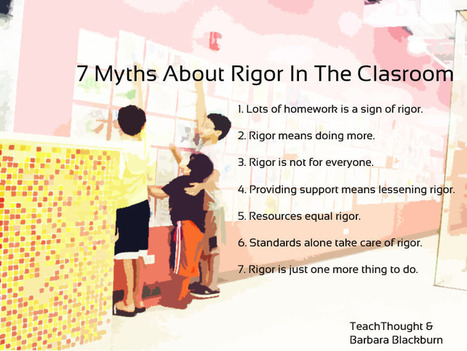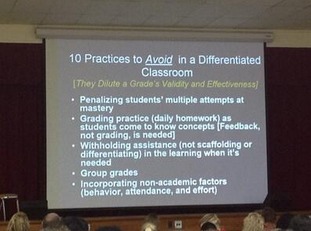Via Beth Dichter
Get Started for FREE
Sign up with Facebook Sign up with X
I don't have a Facebook or a X account
 Your new post is loading... Your new post is loading...
 Your new post is loading... Your new post is loading...
|
Beth Dichter's curator insight,
June 28, 2013 10:30 PM
A great find from Larry Ferlazzo but what are the other five? A bit of research led me to a presentation by Rick Wormeli "Fair isn't always Equal: Assessment and Grading an a Differentiated Classroom" and sure enough the other five were located in the presentation. The are listed below: * Assessing students in ways that do not accurately indicate students’ mastery (student responses are hindered by the assessment format) * Grading on a curve * Allowing Extra Credit * Defining supposedly criterion-based grades in terms of norm-referenced descriptions (“above average,” “average”, etc.) * Recording zeroes on the 100.0 scale for work not done To check out the full presentation (and it is a long URL): http://www.vashonsd.org/mcmurray/science/justin/Resources/Wormeli/Annual_Wormeli_Fair%20Equal.pdf. |












One of the buzzwords in education today is rigor, but what does that mean? This post shares seven myths about rigor, providing a deeper look at each one if you click through. What are these myths? Three are below.
* Is asking students to do a lot of homework a sign of rigor? Not if it is busy work, or if it leads to burnout. Although parents may define it as rigor what do you think?
* Rigor is not for everyone. How do we help students if we request less of them? Rigor may not be the same for each student but each student should be asked to reach their highest level.
* Standards alone take care of rigor. The Common Core Standards tell us they will increase rigor, but it is the instruction that will make this happen, not the standard.
Much more information on this issue is available in the post.
Very true. A must read.